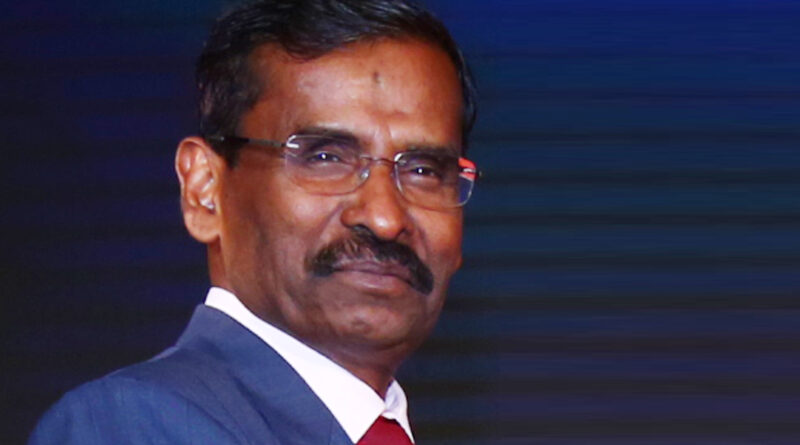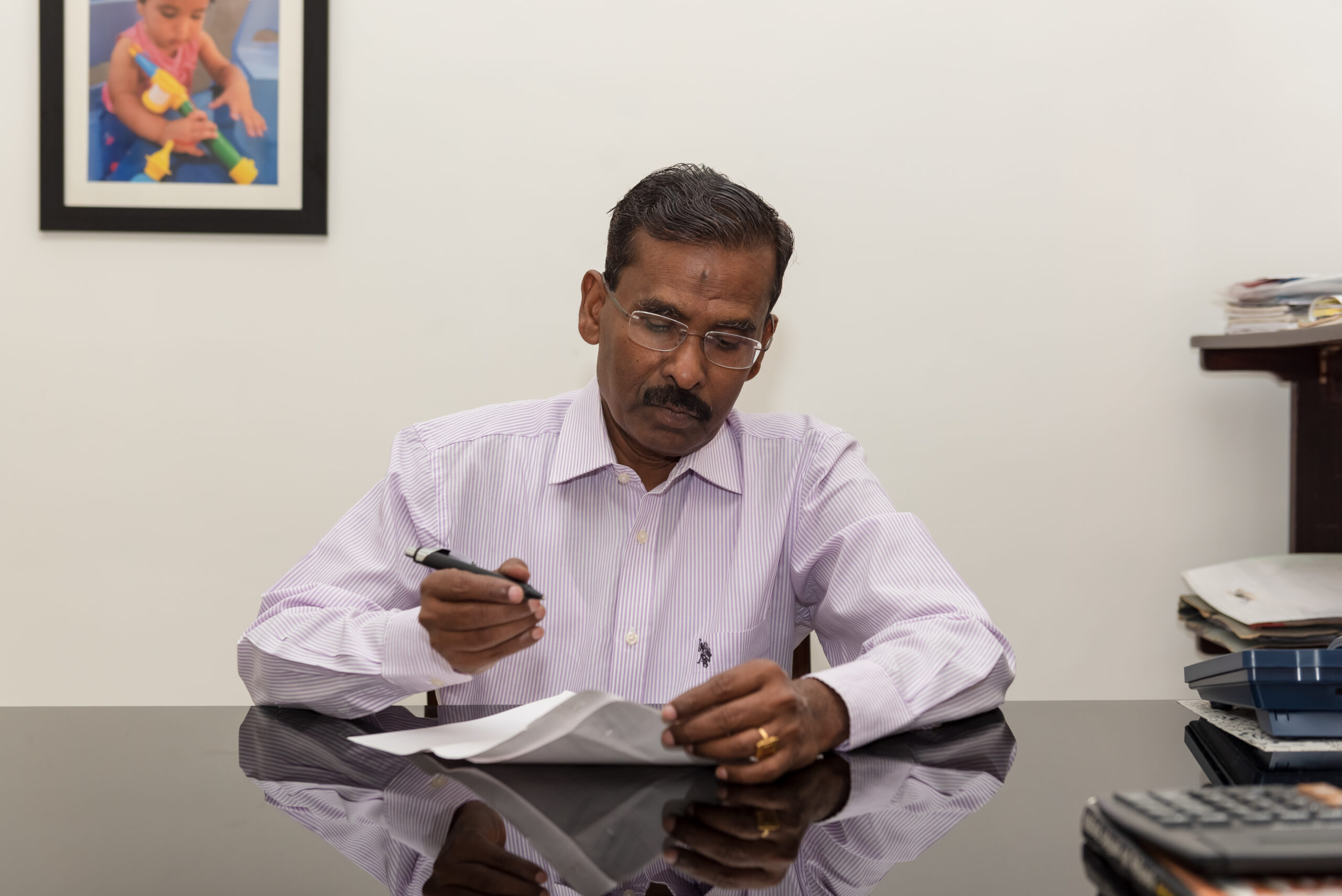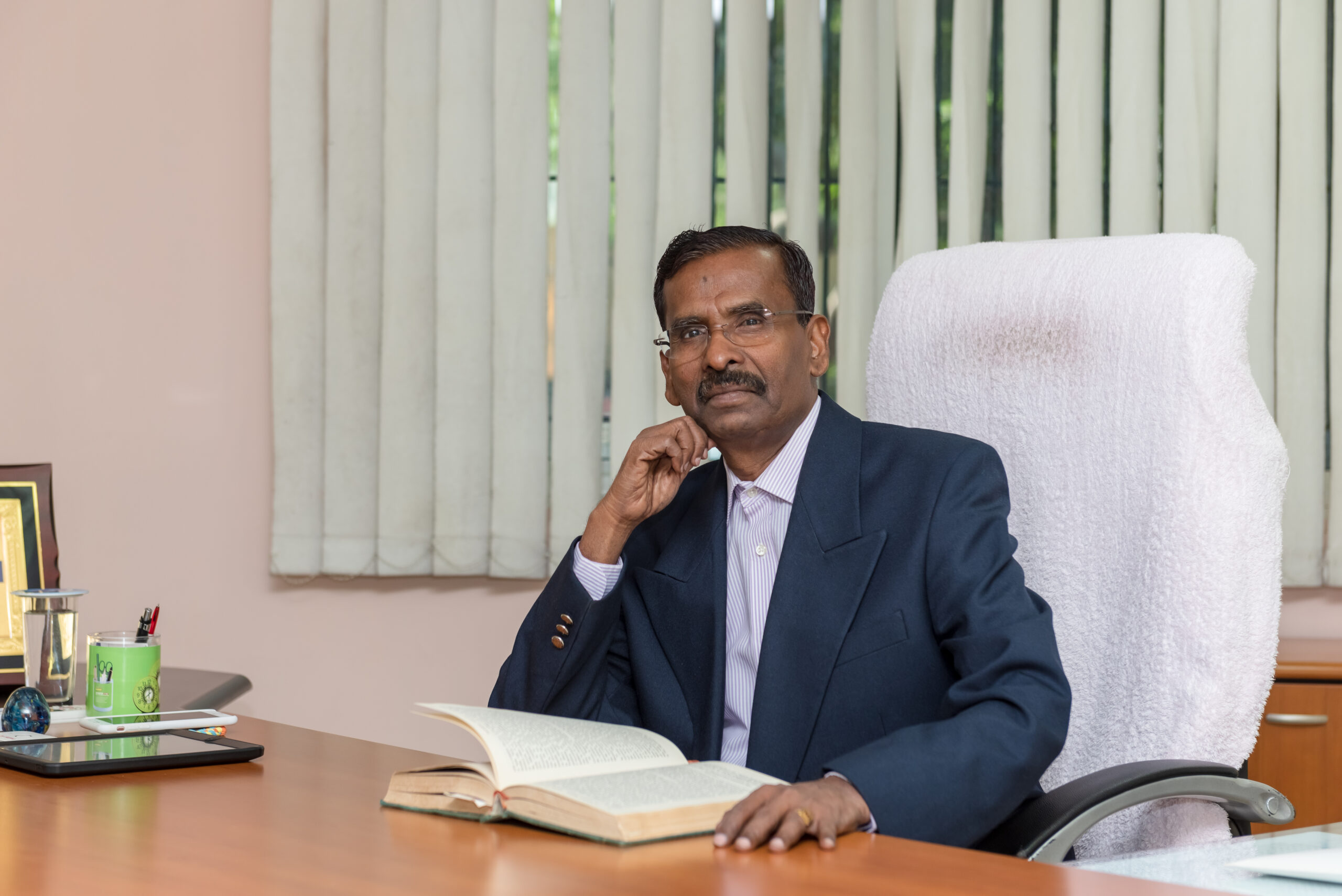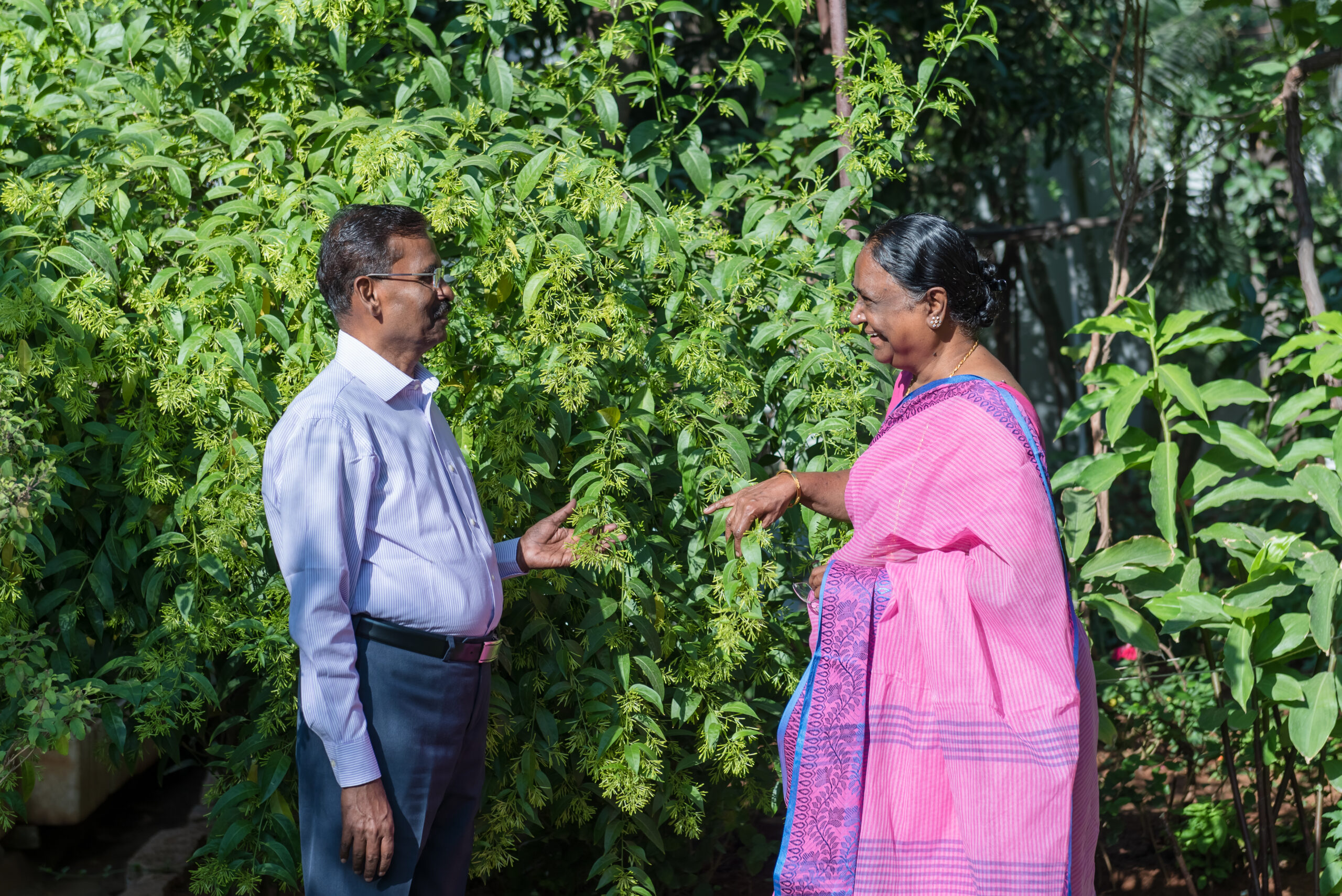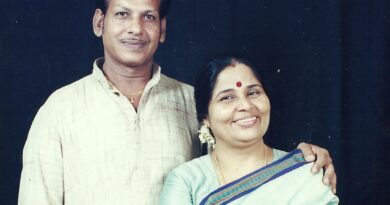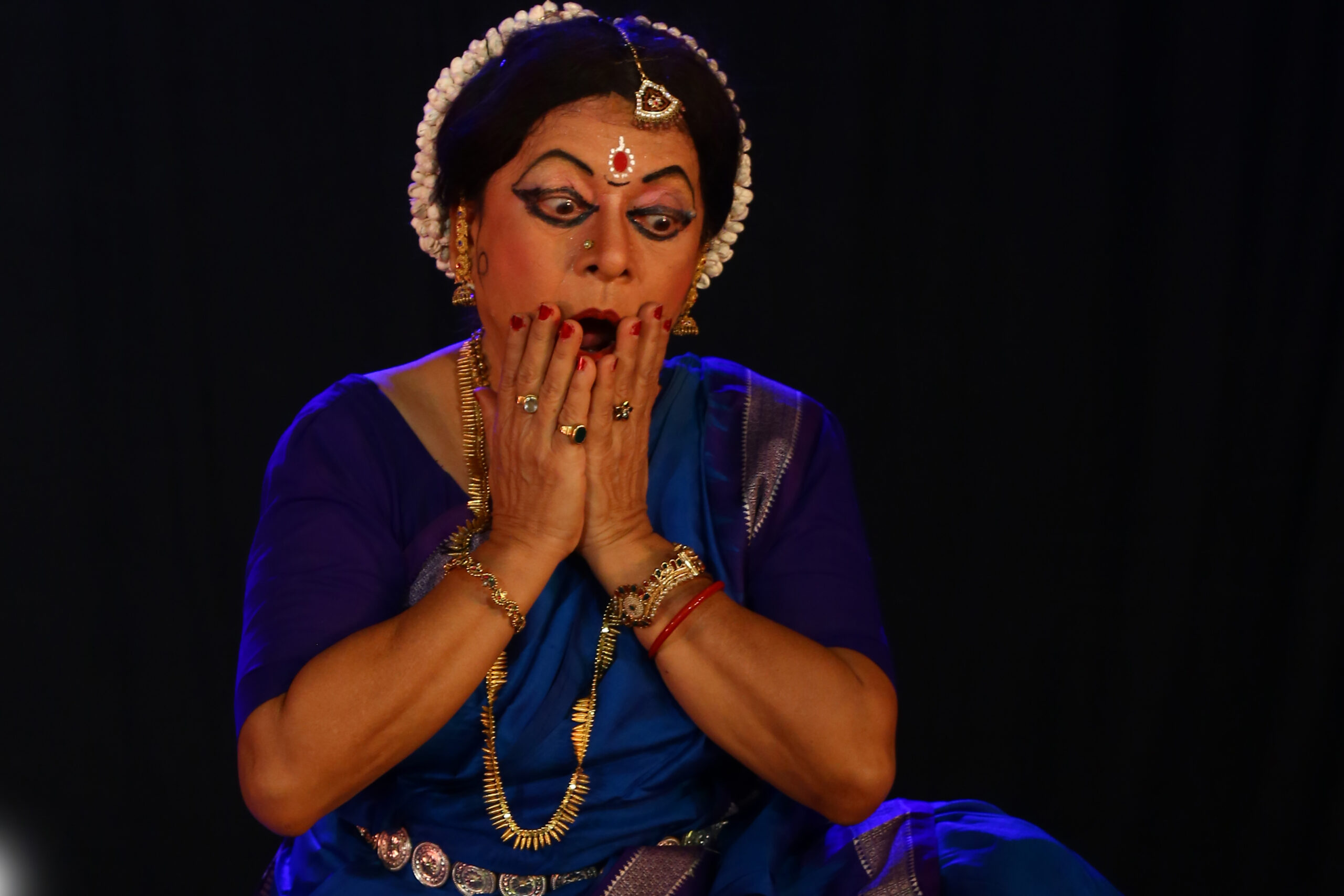Dr Chellappa: A Poetic Bureaucrat
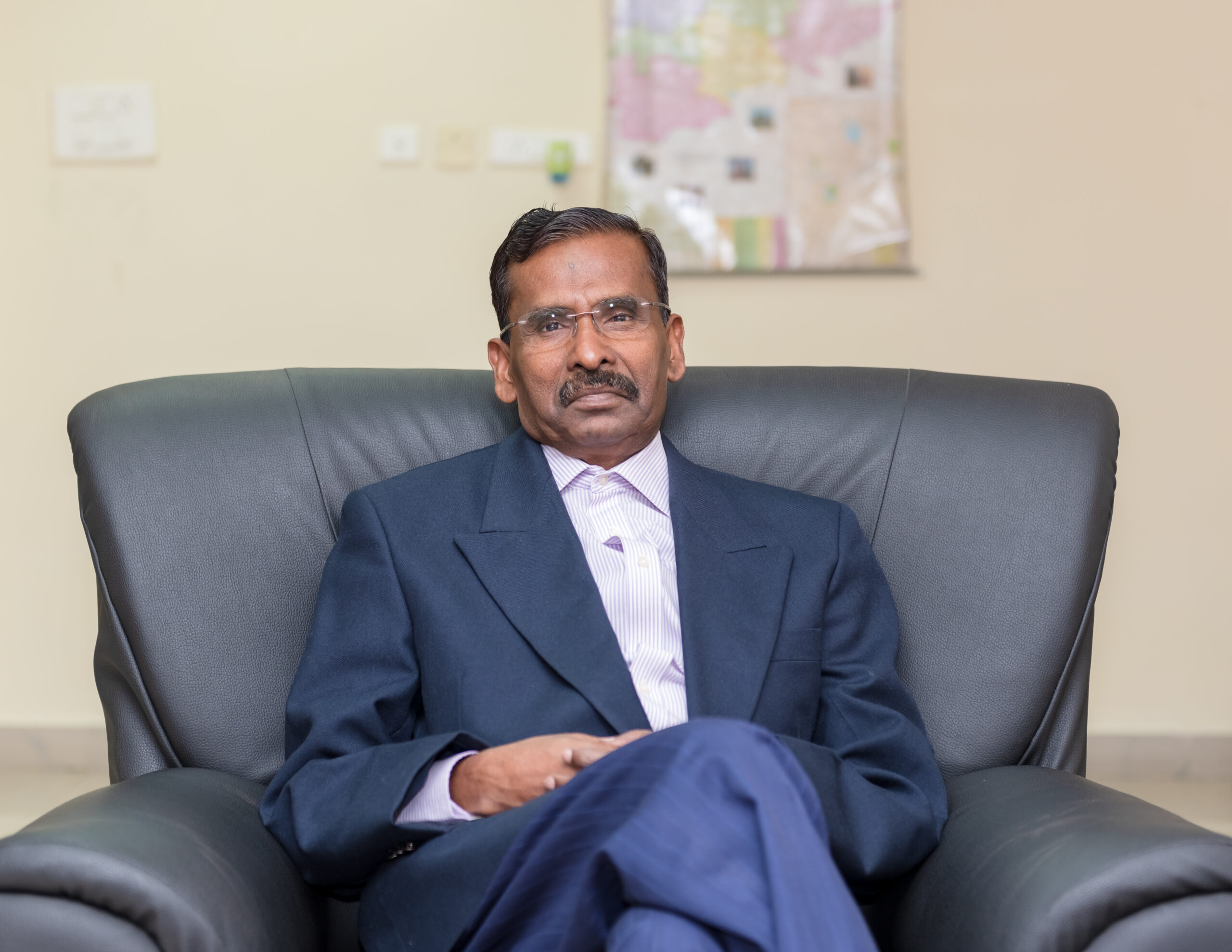
Text: Paul Nicodemus
He is a bilingual poet who writes in Tamil and Telugu. He is also an exemplary bureaucrat who has done some pioneering work in the South Indian states. Dr Susai Manickam Chellappa has made a name for himself with his poetic excellence and down-to-earth administrative approach — someone who used the pen for both poetry and bureaucracy to equal effect. His poem ‘Indra Kaviyam’ received the Best Poetry Award from the Tamil Nadu Government.
Born on February 8, 1952 in Kottur, a small village, now under Tuticorin district, Dr Chellappa was the son of a village leader and homemaker. His mother did agricultural work and took care of the children. Dr Chellappa had nine sisters, and he was the youngest. Chellappa was educated in a Roman Catholic Mission School with the help of the village. He got his primary education from the school and then moved to the Government High School in Kottur. In high school, he secured a gold medal in the SSC examination. However, after secondary education, he did not know what to do. Neither his father nor Chellappa had a vision. Initially he thought he would become a teacher, but since his scores were high, they though he should pursue higher education. A Catholic priest named Rev S Francis guided him to go to St. Xavier’s College in Palayamkottai to pursue PUC (Pre University Course). There he studied English Literature and did well. Unfortunately, he did not get a seat in MA Literature and stayed at home for 1 year. This break helped him study Tamil Literature independently, without a teacher. He studied Tamil classics. This learning helped him later when he opted for Tamil as one of the subjects in IAS and scored high.
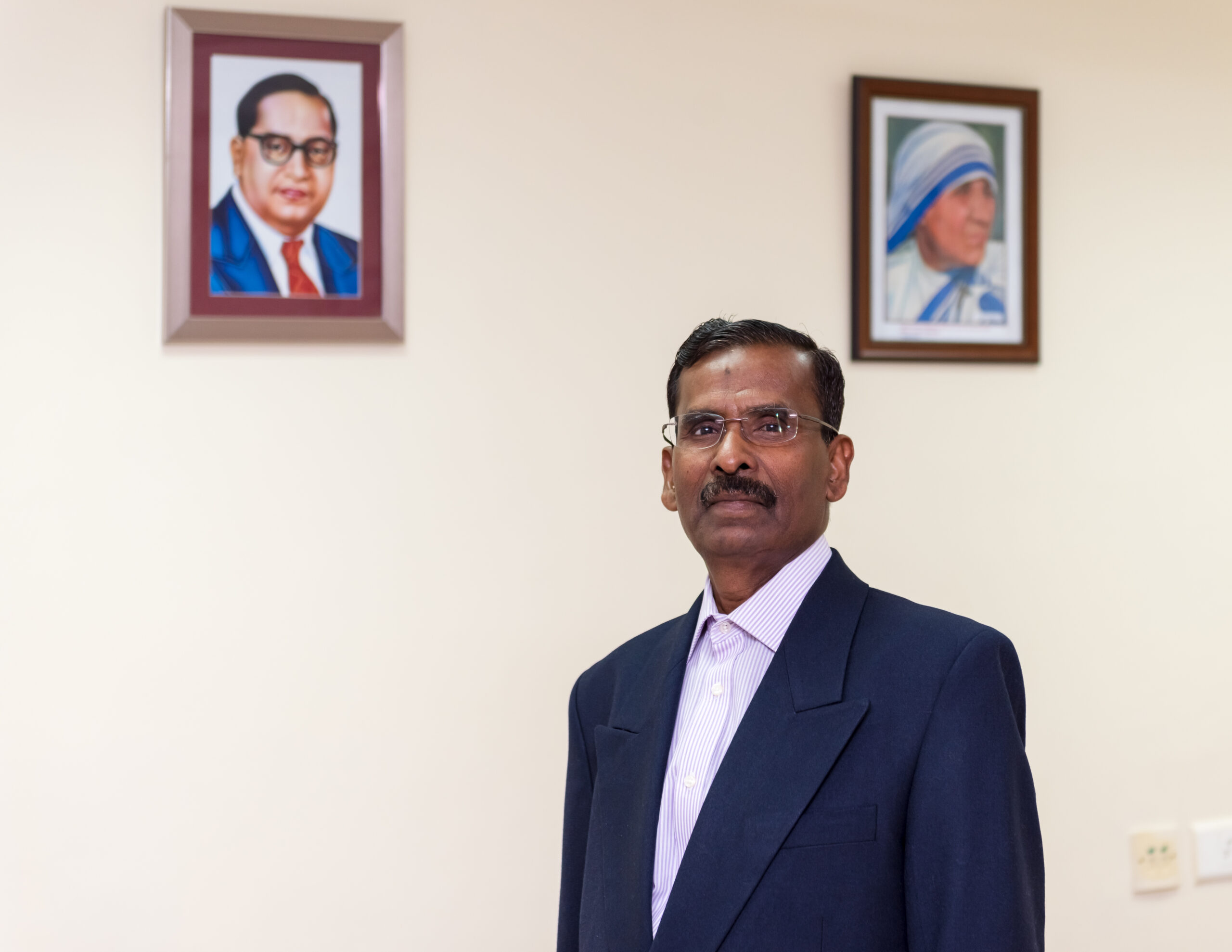
A sudden instance made him pursue civil services. On October 2, 1975, when the great politician Kamarajan passed away, Chellappa was in Chennai. He was reading the news when he came across an advertisement regarding IAS and recalled how his mother had asked him to become an IAS when he was a child.“When I was child, my mother would always ask me to become a collector. But back then, I did not know what a collector meant,” he says.He applied on seeing the advertisement and to his surprise, he got an admission into a training centre in Chennai. At the same time, he got an offer to join the ministerial staff in the department of irrigation at Chirugali. As his mother advised him to take the job than prepare for IAS, he obliged.
While working as a ministerial staff, he attended an interview at Chennai. Chellappa again topped the list and secured a job. He joined as an instructor in English at the Government Polytechnic College in Tuticorin. After working there for few months, he wrote a letter to his professor in Madurai University, now Madurai Kamaraj University who took him as an assistant professor of English in the Department of District Education. While working at the university, he wrote the IAS examination, and was selected as a Class 1 Income Tax Officer in 1977. He entered service of the Government of India on July 20, 1977 in the Indian Revenue Service – Income Tax Department.
During the training, he again took the IAS examination in 1978 and got selected. He later became IAS, 1979 Batch under Andhra Pradesh Cadre. He was the first person to write the exam in Tamil and also get selected. After the selection, he was given training in the Cuddapah district and allotted to the Andhra Pradesh Cadre. He then worked as the collector of Srikakulam and Hyderabad.
Some of his important assignments include Food Corporation of India where he planned and executed 5 lakh tonne capacity godowns to store wheat and rice in the erstwhile Andhra Pradesh. It was a unique contribution to the state of Andhra Pradesh. “Those days we were securing around 30 lakh tonnes of wheat and rice and we supplied rice to Tamil Nadu, Kerala, Karnataka and Pondicherry,” he said. It was he who started supplying rice to Andaman and Nicobar during his tenure. The district office in Andaman and Nicobar was inaugurated during his tenure. Former chief minister of Andhra Pradesh, NTR, addressed him as a brother and had a one-to-one conversation with him. He worked as a sub-collector, collector and district magistrate of Srikakulam and Hyderabad, Food Corporation of India, commissioner of Panchayati Raj, principal secretary (school education), agricultural production commissioner, additional director general of HRD Institute. He retired from service on February 29, 2012.
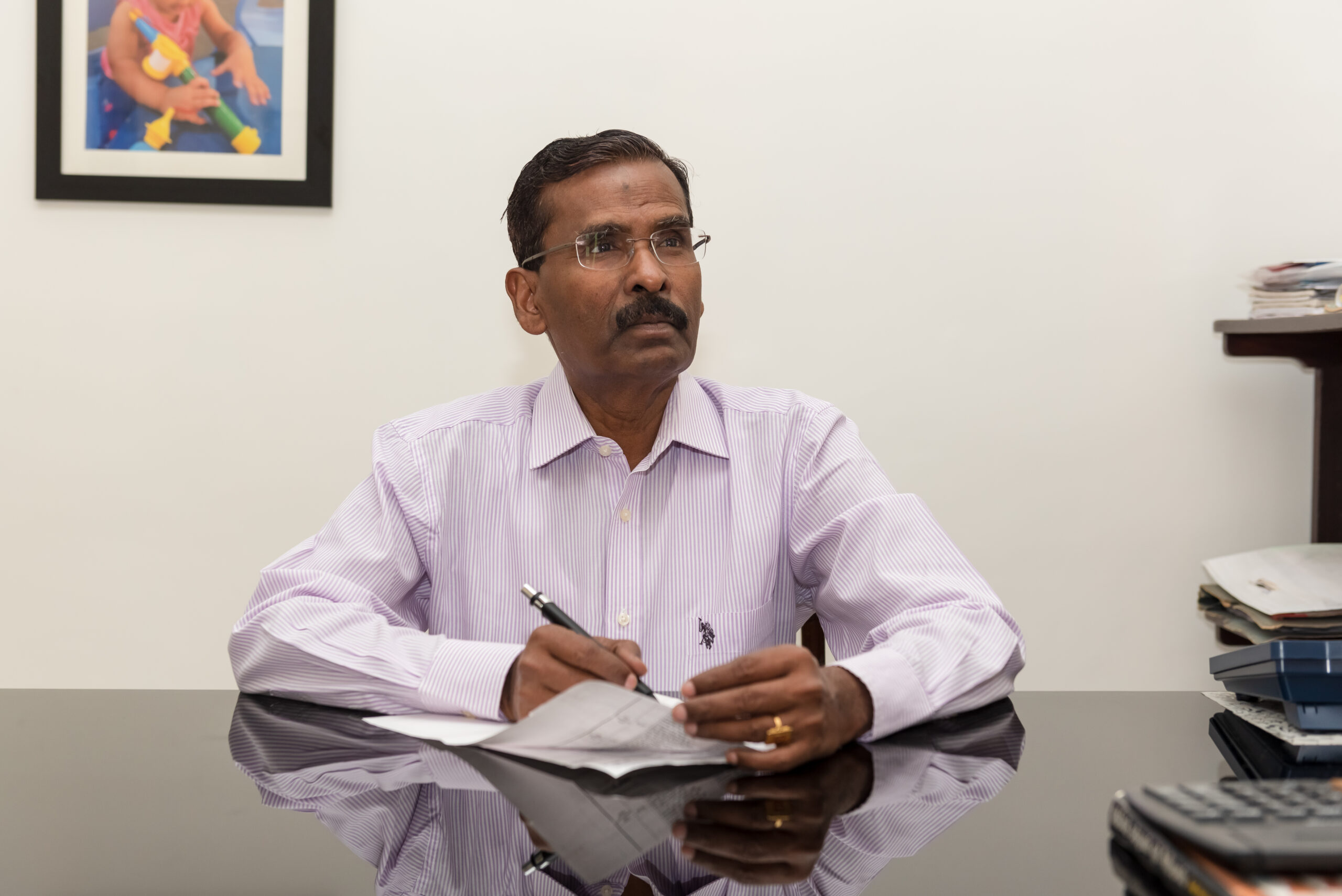
His dad was a Balladeer who used to sing during festivals and his mother encouraged him to recite poems when he was a child. Whenever a guest turned up at the house, his mother persuaded Chellappa to showcase his talents. That helped him a lot. In 2002, he wrote ‘Indra Kavya’, an epic poem in Tamil, dealing with Lord Siva and core Hindu philosophy. The Government of Tamil Nadu honoured him with a prize and he received it from the then chief minister O. Panneerselvam. He has worked mostly on poetry and penned 22 books.“Poetry is in my blood. Poetry is like a seed, a seed contains all the characteristics of a tree. Poetry, in a nutshell, brings emotions, imageries, history, customs and traditions all in few lines, whereas prose is like a growth of a tree. Take the example of a Banyan tree. Though the seed is small, it occupies a large portion once it grows up. Two Banyan trees, one in Jagadish Chandra Bose Garden, Kolkata, and the other in Adyar, Tamil Nadu speak about the difference between poetry and prose.
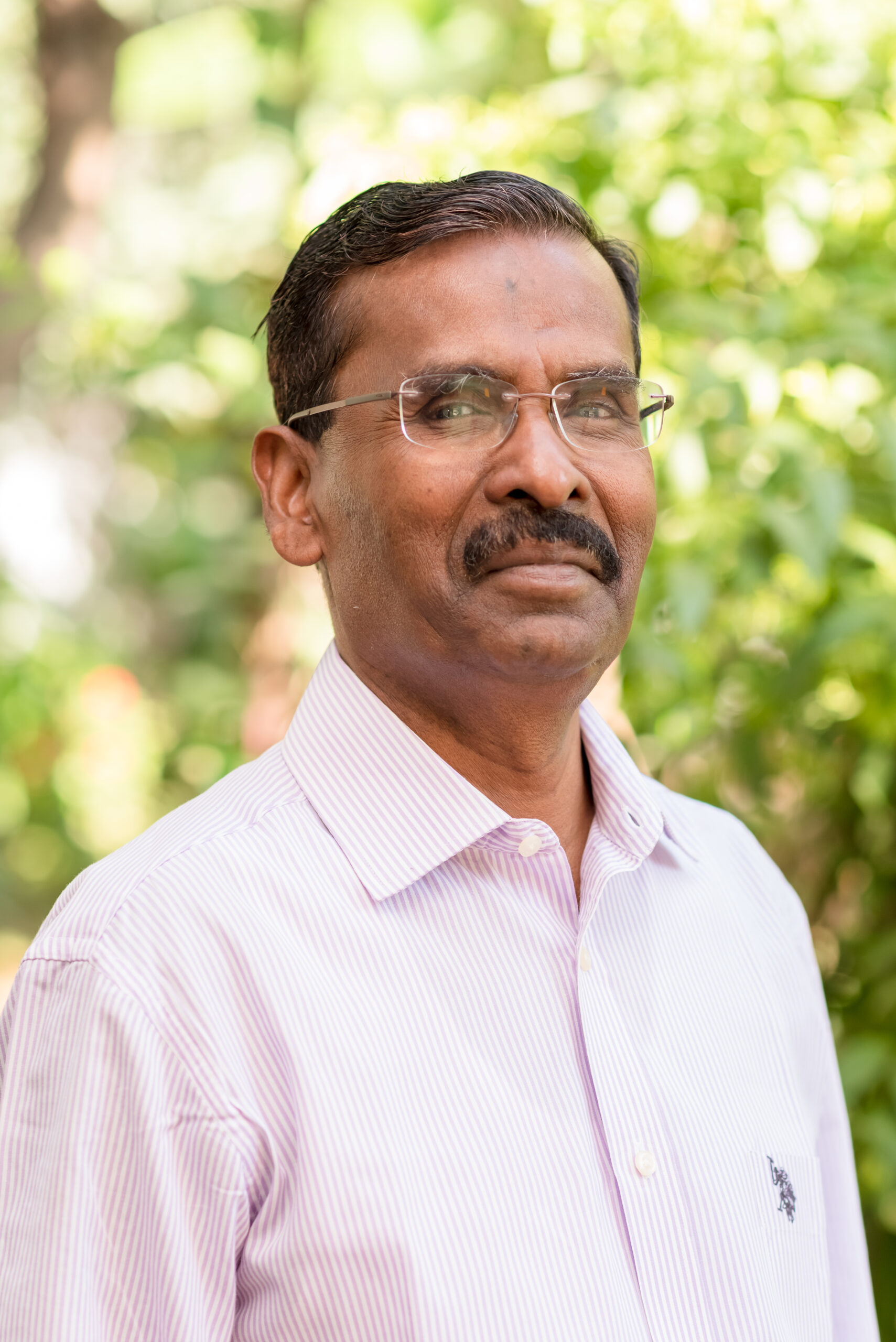
His book Naga Natyam was appreciated by Jnanpith awardee C. Narayana Reddy. Dakshinayanam in Telugu is a philosophical poem about human life’s journey. It is a general perception in the Telugu world that Uttarayanam is considered great but Dr Chellappa as presented a journey of a person towards the south pole.“A sudden idea flashes your mind, and it is converted into a poem. Initially, I wrote in rhyme and metre but now that generation is gone. So, I now write in pre-verse. There is no particular time to write, inspiration can come from anything — a bird, a blade of grass, a setting sun or a rising sun,” he explains.Dr Chellappa’s wife ran a school from 1990 to 2015 under a charitable organisation, and he spent some of his time educating children, especially girl children.He says the medium might be different, but the goal is an encounter with the truth. “When you take a painting, outwardly it makes you think and gives you pleasure but finally takes you to a greater level. Take dance, the colour, rhythm, song, light, costumes and other techniques create an impression. It takes you from a mundane world to a different world – again to see the truth,” he says.

Talking about his family, he says, “My marriage is a legal story. I am a Hindu and my wife, Rajeswari is a Christian. I did not know how to make both things match and read the law. I have gone through the Hindu Marriage Act and Christian Marriage Act and finally opted for a Special Marriage Act. Unfortunately, in India, in certain parts of the country, if people belonging to two different religions want to get married, sometimes the case goes to a High Court and Supreme Court and becomes a social problem. It is unwarranted. In our case, there is no controversy, I take her to church, and she comes to the temple with me. Our daughter Rachel is a lawyer and son Arulappa an engineer,” he says.
He believes the moment the mood of writing a poem grips him is the best moment of his life and there have been many such moments. Every day is a good day, according to Dr Chellappa. “Like good days come and go, so do bad days. They too pass,” he says.
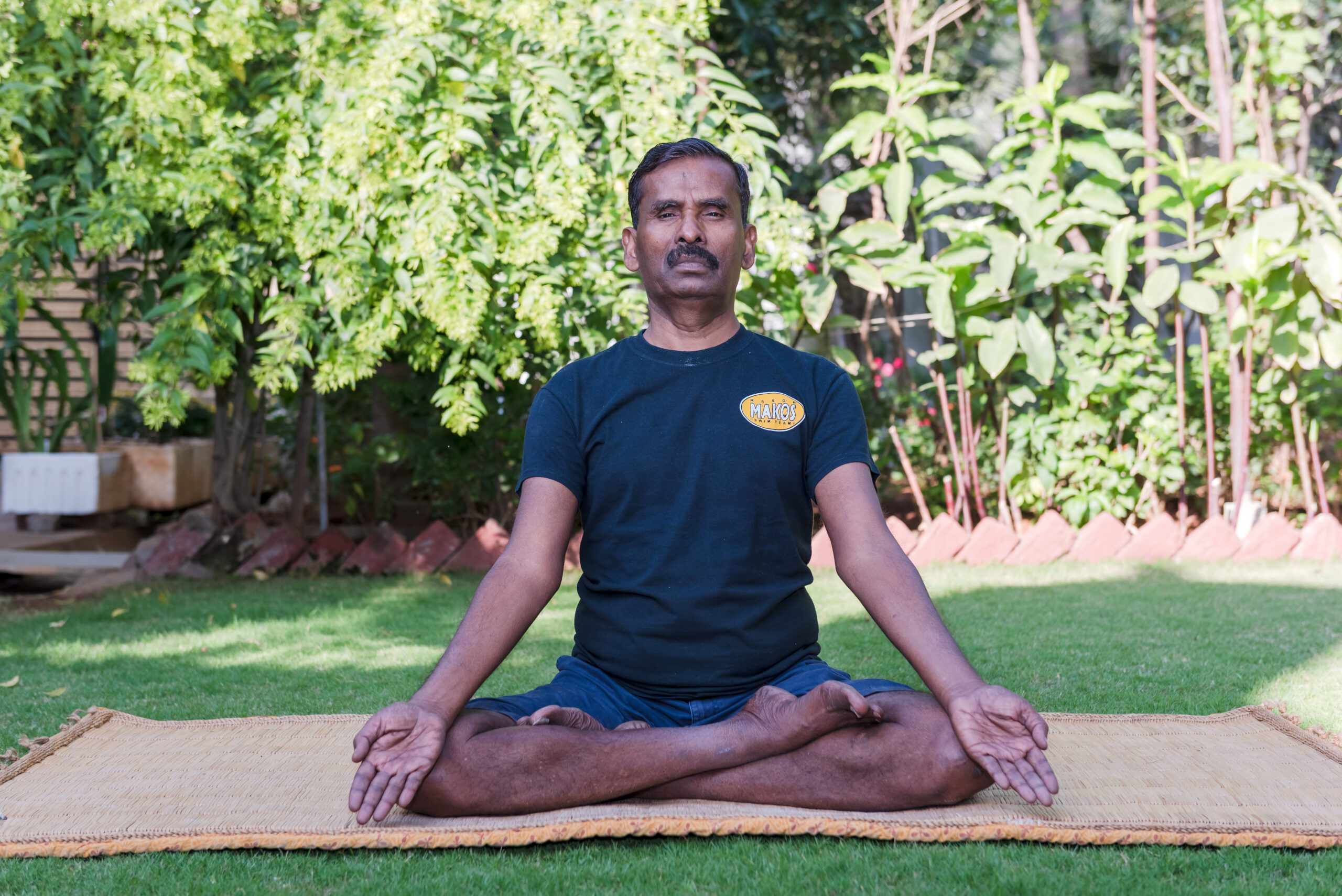
Dr Chellappa adheres by a disciplined lifestyle. Every day he wakes up early morning at 5 am and chalks out his plan for the day and accommodates time for surprises. When something crops up, he does not panic. This helps him approach any challenge in a cool and comfortable frame of mind. He is against violence and follows BR Ambedkar’s philosophy of universal peace.He says the medium might be different, but the goal is an encounter with the truth. “When you take a painting, outwardly it makes you think and gives you pleasure but finally takes you to a greater level. Take dance, the colour, rhythm, song, light, costumes and other techniques create an impression. It takes you from a mundane world to a different world – again to see the truth,” he says.Pointing towards Telugu, Tamil and English literature, he says, “Literature is governed by space and time. Tamil poet Kamban wrote 12,000 poems and people had time to sit and listen but today when you look at Tamil poetry, it is going towards Thulippa or Haiku.”Pointing towards Telugu, Tamil and English literature, he says, “Literature is governed by space and time. Tamil poet Kamban wrote 12,000 poems and people had time to sit and listen but today when you look at Tamil poetry, it is going towards Thulippa or Haiku.”
In Tamil, Kamban, Bharati, Bharati Dasan and Thiruvalluvar; in Telugu, Kandukuri, Jashuva and C. Narayana Reddy and in English, Milton, Shakespeare, Wordsworth and Keats are his favourite poets.
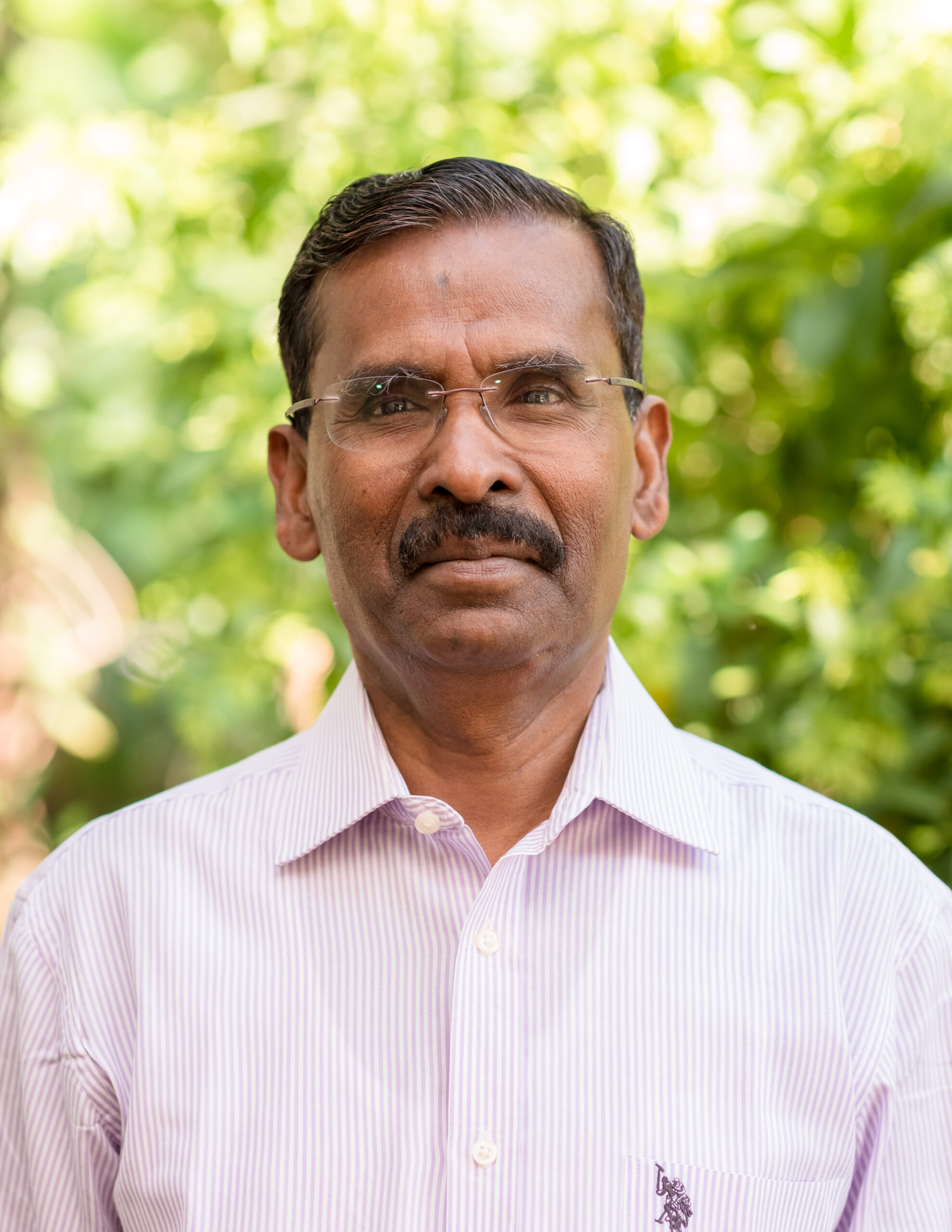
Apart from studying literature, Dr Chellappa has also done Bachelor of Law from Osmania University and PhD in Applied Economics from Andhra University. He is well versed in Hindi, Tamil, Telugu and English languages.
Dr Chellappa is the founding member of The Dravidian University, recipient of the Best Poetry Award from the Government of Tamil Nadu (2002), Tamil University at Thanjavur Awardee for Service to Tamil Language (2016), honoured by the Tenali Literary Conference for service to Telugu Language (2018), first to take steps to tap groundwater potentials with the brand name Jeevan Ganga, which was later adopted by the Government of India as Jeevan Dhara (1988). He designed, executed and created 500,000 metric tonnes godown in Andhra Pradesh, a lifetime achievement (1991-1995), started the first college girls’ hostels for backward classes (2004-2005) and brought out the first cultural policy doctrine of Andhra Pradesh (2010).
Apart from these, he was also member, Bar Council of Telangana, Honorary Patron of Sree Narayana Guru Dharma Paripalana Yogam, he drafted the AP Devadasi (Prohibition) Act – Act 10 of 1988, drafted the Telangana Panchayat Raj Act – Act 5 of 2018, Director of NABARD (2008-09) and Director of Indian Coffee Board (2008-09).
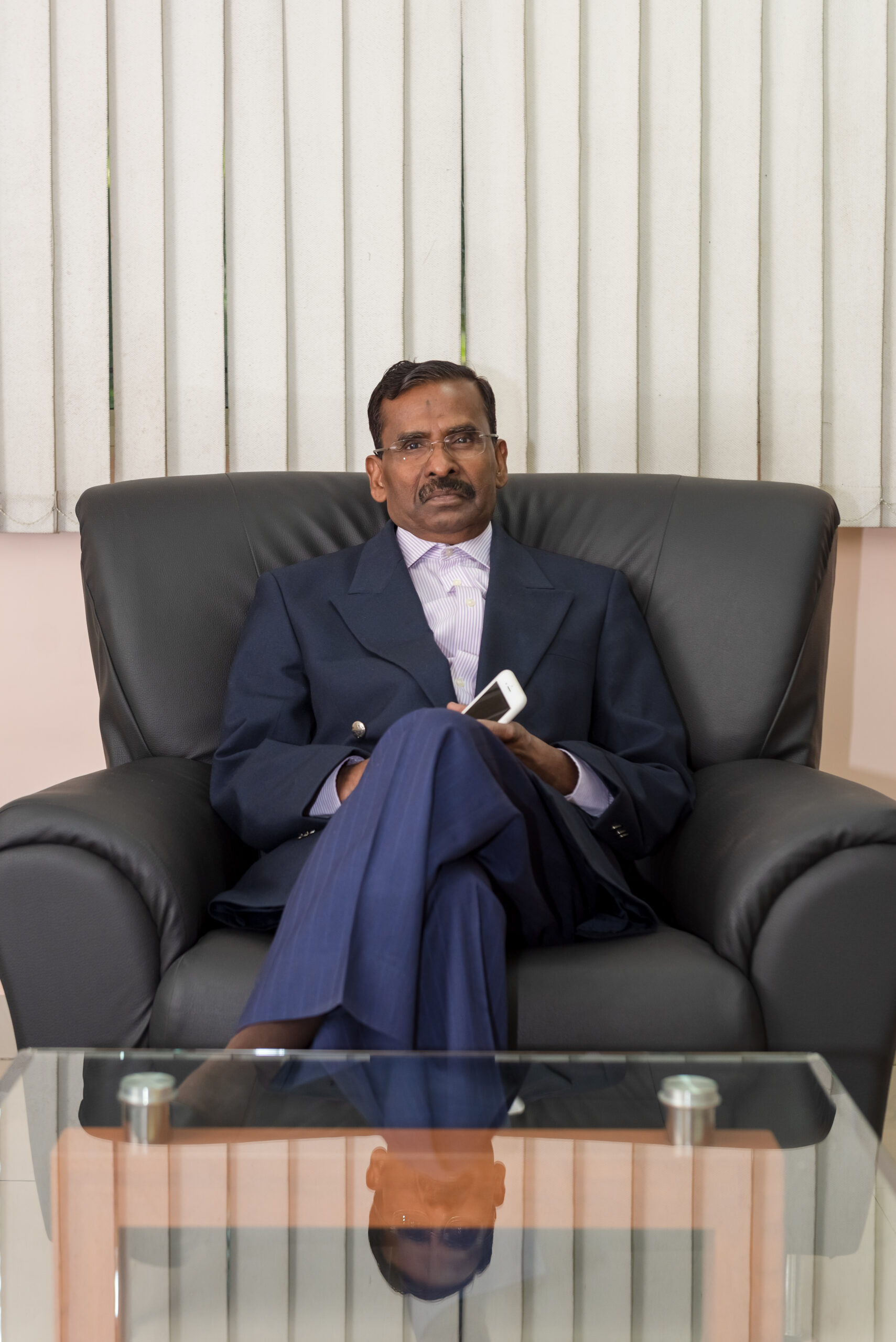
He has visited the USA, France, Switzerland, Nepal, Singapore and Malaysia.
His message to the younger generation is, “The younger generation is dynamic and forward-looking, but then to achieve goals they have to use conventional tools such as hard work, commitment and understanding.”
Literary works of Dr Chellappa
Chengadal
Ullakkumural
Udirip Pookal
Odaik Kavidaigal
Kootirku Veliye
Meendum Illavenil
Vidaiye Illatha Vinakkal
Puthu Vellam
Cholla Cholla Inikkudada
Pullil Thoongia Pani (Autobiography – Part 1)
Iral Meen Valarpu – Varavum Chelavum (English)
Indra Kaviyam (received Tamil Nadu Government’s Best Poetry Award)
Naga Natyam (Telugu)
Thiruvallur Kalak Kumuga Varalaru (History)
Koovu Kozhiye (This is translated into Telugu by the Potti Sreeramulu Telugu University)
Maraikkappatta Mamallar Varalaru
Dakshinayanam (Telugu)
Vavalin Payanam (Translation of Gurram Joshua’s Poem ‘Gabbilam’
Then Kinnam
Kanavil Chiritha Kattu Pookal
The Cuddapah Roots – (Autobiography – Part 2)
Nizhar Kanintha Kanigal
****
“The conspiracy of the sun god
Shall not scorch us and fully forever.
The rain god also is not going to forget the earth forever.
This is the truth.
Even before the rain becomes copious
Let us create the reservoirs and canals.
If all the villages put their might together
A hundred reservoirs indeed shall be made.”
From Indra Kaviyam – a poem that received the best Poetry Award from the Government of Tamil Nadu.

